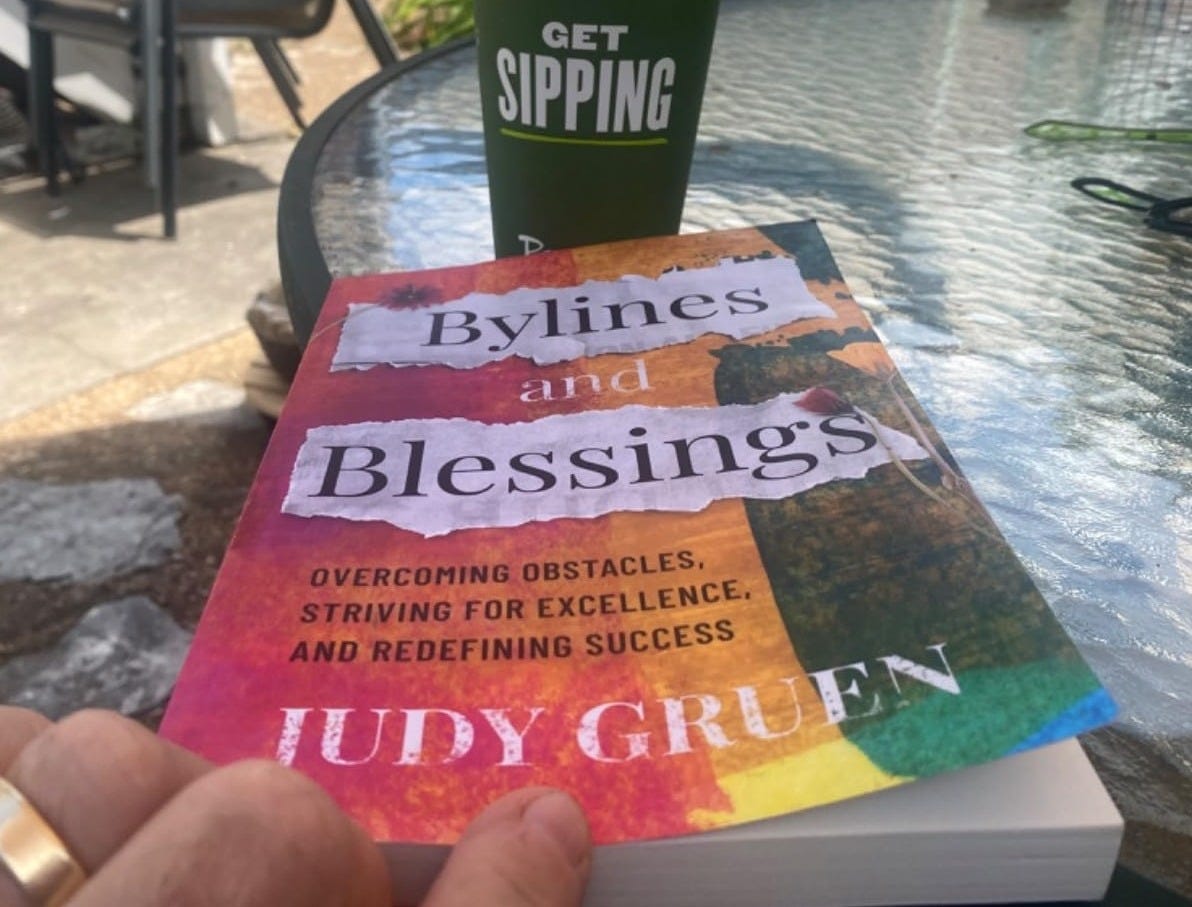Out of all the Jewish holidays, only Sukkot is deemed the "season of our happiness." Why not Passover, when we were freed from more than two centuries of Egyptian bondage? Why not Purim, when clever Queen Esther foiled Haman's genocidal plot against us?
Actually, how can happiness by commanded, no matter the occasion?
It seems an especially meaningful question to ask now, after a year of so much shocking terror and sorrow. (But also, a year of astonishing miracles and beauty.)
During Sukkot we leave our sturdy homes and dwell in flimsy huts. This year, thinking about the thousands of people in Florida and North Carolina whose homes were suddenly washed away in hurricanes, we are reminded that even the sturdiest of homes can be lost in an instant. Our material wealth and possessions can be ephemeral. Sukkot’s message is that our only true and permanent safety and wealth lie in God’s protection. Our truest, most abiding happiness is linked to intangibles, such as love of family and friends, and building a life based on giving more than receiving. Our ultimate happiness is inside of us, not in our material possessions.
Many years ago, I interviewed Tal Ben-Shahar, Ph.D., about the idea of lasting happiness. How does one achieve it? Ben-Shahar is a leading expert on happiness, the author of several books on the topic, including Happier, No Matter What: Cultivating Hope, Resilience, and Purpose in Hard Times. A former instructor at both Harvard and Columbia, Ben-Shahar now offers certificate and even a master’s degree through his Happiness Studies Institute. His purpose in life, stated on his website, is to bring happiness to life—in individuals, groups, and organizations.
The topic is personal for him. As an undergraduate at Harvard, Ben-Shahar hadn’t been happy, despite his popularity and status as a star student and athlete. He had everything going for him, so his unhappiness didn't make sense. Baffled, he decided to examine his life more closely. He switched majors from computer science to philosophy and psychology. That’s where he found not only the keys to happiness but also a career in helping others find it as well.
Years later, while teaching an elective on positive psychology, he saw that his students at Harvard struggled with happiness just as he had. Affluence, braininess, and enrollment in a elite university were no guarantee of happiness.
Ben-Shahar knows that keys to happiness are sourced in Jewish values, including being able to focus on the here and now. The U.S. “leads the pack in terms of the pressure that is put on students to get high grades, to always think about the future,” he said. “Adults in the work world face similar pressure. But with all this emphasis on the future, many people end up missing the present."
Additional pay and professional accolades don't make us happier. Rather quality time off to savor the joy we already have.
"Working more hours may make us more money, but we'll pay the 'ultimate currency' if we do," he explained. “More quality time off to savor the joy we already have does.”
Studies on happiness have consistently confirmed what Jewish wisdom already knew. Other Jewish happiness boosters that are built into the fabric of our lives include Shabbat. "People who take a day of rest are happier and more productive than those who don't, because we have to 'recreate' if we want to create. This is not only a value but also a tool to success," he said.
A second happiness booster is gratitude. People who express hakarat hatov, gratitude for what they have, are happier people and more generous as well. And from the moment a Jew wakes up, he or she has unlimited opportunities to express gratitude, from saying "modeh ani" upon arising from bed, to making a blessing after going to the bathroom for a healthy body, to blessings for food, and innumerable others included in daily prayers. We are grateful for the “small” things we take for granted, such as being able to see and stand up straight. But they are not small—they are huge.
Practicing rituals and cultivating a sense of spirituality also make people happier, Ben-Shahar noted. Attending synagogue, spending time with family around the dinner table, and other honored rituals are ingredients in most happy people's lives.
We live in an age of increasing atheism, or at least, the substitution of some other cause—politics, environmentalism—as a substitute religion. This, too, is a costly choice. "Viktor Frankel called living without God an 'existential vacuum,'" he said, adding that secularists who like to point to Nietzsche's famous quote that "God is dead" completely misunderstand his meaning. "Nietzsche didn't say this with satisfaction, but with pathos. He realized that a life without God meant a deep existential emptiness for many."
Ironically, the more people today focus on their own happiness, the less happy they tend to be. Happiness is far more likely to result from living well and focused on service to others. When your own happiness becomes the main goal, not only do you become a narcissist, but you’ll never achieve the happiness you seek. Living in a community that gives context and offers meaningful relationships with people with shared values is a surer path to happiness."
A happy life is not a pain-free life.
One lesson Ben-Shahar has needed to reinforce to his students is that a happy life is not a pain-free life. "A full life has sadness, anger, envy, fear, and disappointment. If we don't give ourselves permission to experience painful emotions, they intensify, become toxic and they stick,” he said. “When we let them flow through us, they weaken and dissipate. Resilient people look for and create growth from difficult situations,” the happiness expert said.. “You can choose to be devastated by events, or you can derive benefit from them."
Happiness results from the countless choices we make, including choosing to feel gratitude even during hard times: "Do I focus on the fact I have my health and food on the table, or do I focus on the fact that I have to sell my Ferrari? Focus on the yesh versus the ain (what I have versus what I do not have)." There are few better opportunities for this kind of focus than during Sukkot, when we eat, and possibly even sleep, in little booths that are built for contemplation, not construction awards.
When I sit in our sukkah this year, I will feel the relief of having done so much cooking for so many people. . . while so grateful that all those people are my family: my husband, children and grandchildren. . . my greatest gifts of all, given to me by a loving God.
*************************************************************************************
Before I sign off. . .
Do you still need a little happiness boost while you sit in your happiness booth? Get your copy of Bylines and Blessings. It will do the trick!
Reader Wayne W posted on Amazon: “Reading Bylines and Blessings made me feel like I tasted something so good that I felt like I had tasted a bit of heaven.”





